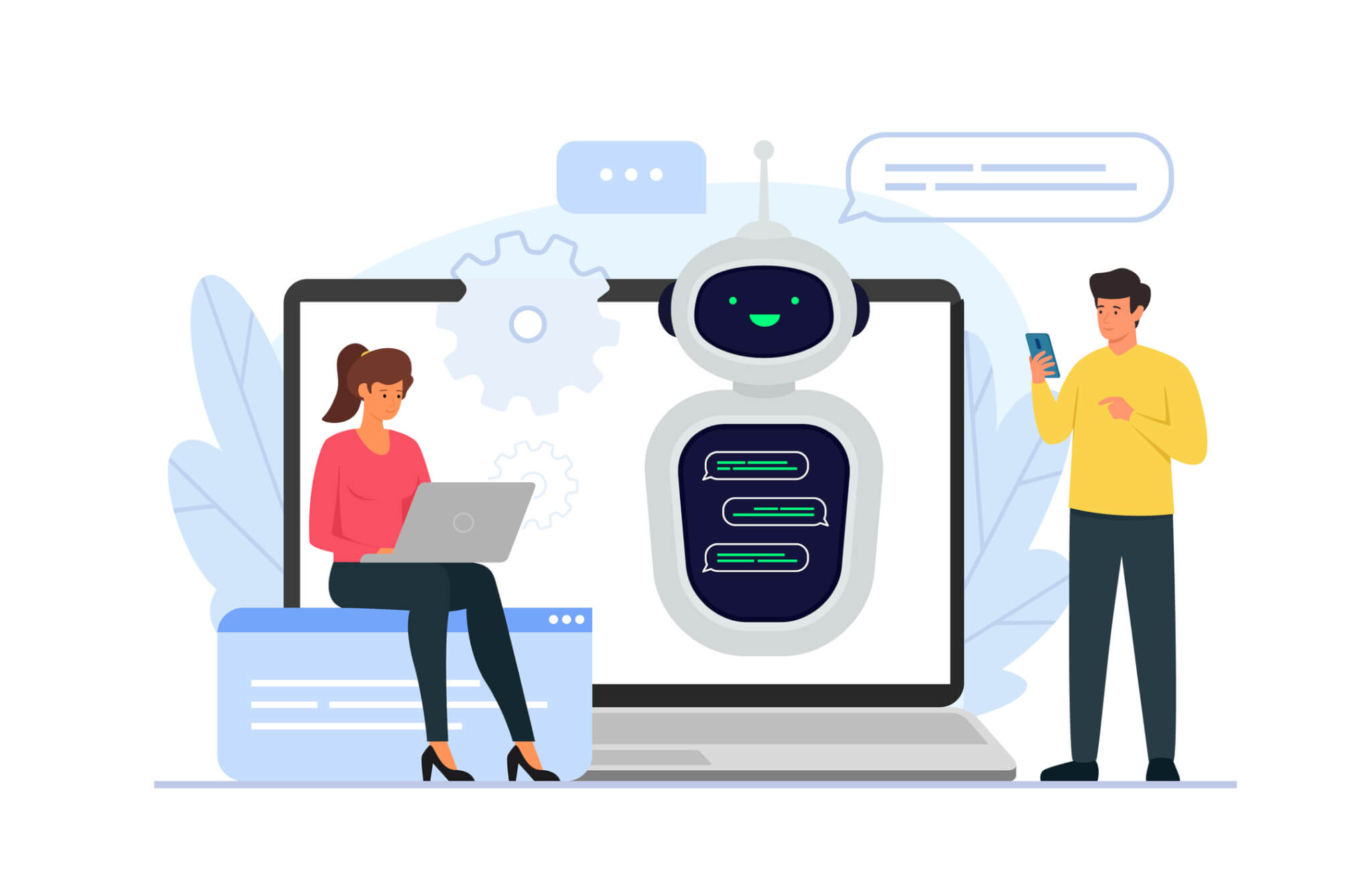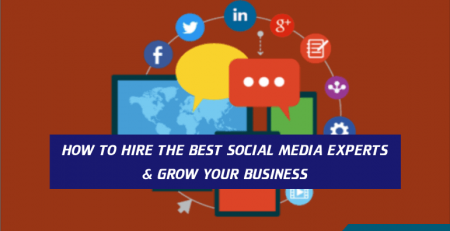How to Use AI Tools for Small Business Marketing
Learn how to use AI tools for small business marketing with our step-by-step strategies. boost your digital marketing efforts with AI-powered content creation, SEO, digital advertising, and data analysis. This guide explores how small businesses can utilize AI tools in their marketing campaigns to drive growth and improve efficiency.
In todays digital space, Artificial Intelligence (AI) is transforming industries globally, and marketing is no exception. Small businesses, with limited resources, can leverage AI to automate marketing processes, gain insights from data, and deliver personalized customer experiences.
Here is a step-by-step guide on how to use AI tools for small business marketing.
How to Use AI Tools for Small Business Marketing in 9 Easy Steps:
1. Personalized Customer Experiences
AI excels at analyzing vast amounts of data, helping businesses understand customer preferences and behavior patterns. Small businesses can use AI-driven tools to deliver personalized marketing experiences that resonate with individual customers. Here are how it works.
a. Customer Segmentation
AI can automatically segment customers based on their demographics, past purchasing behavior, and interactions with the business. Instead of manually identifying segments, AI algorithms analyze customer data and group them accordingly. This helps businesses target the right audience with personalized offers.
b. Recommendation Engines
AI-powered recommendation engines (like those used by Amazon, Facebook and Netflix) allow businesses to suggest products or services based on individual customer preferences. Small businesses can deploy the recommendation systems on their websites or email campaigns to boost sales and customer retention.
c. Dynamic Content
AI can help you create dynamic content that changes based on who is viewing it. For instance, AI can adjust website elements, such as banners and product suggestions, based on a user’s past interactions or location, creating a more tailored user experience.
2. Automating Marketing Tasks
AI tools can help small businesses automate repetitive marketing tasks, freeing up time and resources for strategic decision-making. Automation can significantly reduce human errors and ensure consistent delivery of marketing messages. Here are how it works.
a. Email Marketing Automation
AI-powered email platforms like Mailchimp, Constant Contact, or ActiveCampaign can automate email campaigns, optimizing send times, subject lines, and content based on user behavior. These tools analyze previous email interactions and predict the best times to send messages to maximize engagement.
b. Social Media Automation
Tools like Buffer, Hootsuite, and Sprout Social use AI to manage social media accounts, automatically posting content at optimal times and even suggesting the best type of content for different platforms. AI can also analyze engagement metrics to determine which posts are performing well and suggest adjustments.
c. Chatbots for Customer Support
AI-driven chatbots can provide 24/7 customer support, handling basic queries, scheduling appointments, and guiding customers through the sales process. Platforms like Drift and Intercom allow businesses to implement chatbots that interact with website visitors, answering common questions and gathering customer data.
Don’t Miss: 20 Digital Marketing Strategies You Must Know
3. Optimizing Ad Campaigns
AI can make digital advertising more efficient and effective by automating ad targeting, budget allocation, and performance analysis. Here are how it works.
a. Programmatic Advertising
AI tools can automate the process of buying and optimizing ads in real-time, ensuring that ads reach the right audience at the right time. Programmatic advertising platforms like Google Ads and Facebook Ads use AI to optimize bidding strategies, targeting, and ads placements to get the best return on investment (ROI).
b. Predictive Analytics
Predictive analytics tools analyze past customer behavior to forecast future trends and optimize ad targeting. AI helps predict which customers are more likely to convert, allowing businesses to focus their ad spending on high-value prospects.
c. A/B Testing Automation
AI tools can automate A/B testing for ads, determining which creatives, ad copy, or targeting parameters perform better. This continuous testing and optimization process ensures that businesses can adjust their campaigns for maximum impact and save money.
4. Improving SEO with AI
Search Engine Optimization (SEO) is crucial for driving organic traffic to your website. AI can help small businesses stay ahead of the competition by optimizing their SEO strategies. Here are how it works.
a. AI-Powered Keyword Research
AI tools like Ahrefs, SEMrush, and Moz can conduct in-depth keyword research by analyzing search trends, competitor data, and search volumes. They provide suggestions on the best keywords to target, helping small businesses improve their search rankings.
b. Content Optimization
AI content optimization tools such as Clearscope and MarketMuse help businesses write SEO-friendly content by analyzing what top-ranking websites are doing. These tools suggest keywords, content structure, and readability improvements to ensure the content ranks higher on search engine results pages (SERPs).
c. Voice Search Optimization
As more people use voice assistants like Siri, Alexa, and Google Assistant, AI can help your small business optimize its content for voice search. This includes focusing on long-tail keywords and conversational language that aligns with how users speak their queries.
5. Data-Driven Decision Making
One of AI’s greatest strengths is its ability to analyze vast amounts of data and provide actionable insights. Small business owners can leverage this capability to make informed marketing decisions. Here are how it works.
a. Customer Insights
AI tools like Google Analytics or Mixpanel provide in-depth insights into customer behavior, allowing businesses to understand how users interact with their websites, social media pages, or products. These insights can be used to tailor digital or ecommerce marketing strategies and improve customer experiences.
b. Sales Forecasting
AI can analyze historical sales data and predict future trends, helping businesses prepare for high-demand periods or adjust their inventory and marketing strategies accordingly. This is particularly useful for small businesses with limited resources, as it allows them to plan more effectively.
c. Sentiment Analysis
Sentiment analysis tools such as Brandwatch and Sprinklr can analyze customer reviews, social media comments, and feedback to gauge customer sentiment. This helps businesses understand how customers perceive their brand and whether their marketing efforts are having a positive or negative impact.
You may Like: Free SEO Keyword Research Tools for Small Business
6. AI for Content Creation
AI can assist small businesses in creating marketing content and copywriting, whether it’s social media posts, blog articles, or email newsletters. Here are how it works.
a. AI Copywriting Tools
Platforms like Jasper, Writesonic, and Copy.ai can generate marketing copy based on input from the user. These tools are useful for creating product descriptions, ad copy, or even entire blog posts, saving small businesses time and effort in the content creation process.
b. Video and Image Recognition
AI tools can automatically generate video captions or suggest relevant images for social media posts. Tools like Lumen5 turn blog posts into engaging video content, while Canva’s AI features help businesses create custom graphics in minutes.
7. Customer Retention and Support
Retaining customers is essential for any small business, and AI can help by analyzing customer data to predict which customers are likely to churn and what actions can be taken to prevent it. Here are how it works.
a. Churn Prediction
AI can analyze customer behavior to identify patterns that suggest a customer is about to leave or stop engaging with a brand. Businesses can then implement targeted retention strategies, such as personalized offers or re-engagement campaigns, to prevent churn.
b. Customer Lifetime Value (CLV) Prediction
AI tools can predict the potential lifetime value of a customer, helping businesses focus on high-value clients and develop marketing strategies accordingly. This ensures that marketing resources are allocated efficiently, improving overall profitability.
8. AI in Influencer Marketing
Influencer marketing is a popular strategy, but identifying the right influencers and measuring their impact can be challenging. The use of AI can simplify this process. Here are how it works.
a. Influencer Identification
AI-driven platforms like AspireIQ and Traackr help businesses identify influencers whose audience matches their target market. These tools analyze metrics such as engagement rates, follower demographics, and content relevance to ensure the chosen influencer aligns with the brand’s goals.
b. Campaign Performance Tracking
AI tools can track influencer marketing campaigns, analyzing metrics such as engagement, conversions, and reach to provide a clear picture of the overall campaign’s success. This data-driven approach ensures that businesses can measure ROI and adjust their strategies accordingly.
Related Post: 5 Benefits of Instagram Marketing for Small Businesses
9. Enhancing Customer Support with AI
Providing excellent customer support is key to retaining customers, and AI can assist small businesses in offering efficient and personalized support. Here are how it works.
a. AI Chatbots
As mentioned earlier, chatbots are essential for providing real-time responses to customer inquiries. AI-powered chatbots can handle routine questions and tasks, allowing human agents to focus on more complex issues.
b. AI-Powered Help Desks
AI-driven help desks like Zendesk and Freshdesk use machine learning to route customer inquiries to the right department, suggest relevant help articles, and even provide agents with recommended responses, improving the speed and quality of customer support.
Final Words: How to Use AI Tools for Small Business Marketing
AI offers small businesses the opportunity to compete with larger companies by automating many processes, personalizing marketing efforts, and making data-driven decisions. By adopting AI tools for customer engagement, content creation, SEO, advertising, and data analysis, small businesses can enhance their marketing strategies, reduce costs, and improve overall performance.
The key to success with AI in marketing is starting small—implementing one or two AI-powered tools—and gradually integrating more complex systems as the business grows. By embracing AI, small businesses can unlock new levels of growth and efficiency in their marketing efforts.
As a full service digital marketing agency based in Lagos Nigeria. We work with startups and eCommerce companies in creating user-friendly web designs, and advertising campaigns, driving website traffics though SEO and PPC advertising, generating leads and converting site visitors into paying customers.
Contact us now for free consultation. Learn how the use of Artificial Intelligence (AI) can help grow your small business from scratch to a big corporation. Enhance your marketing efforts with AI-powered content, SEO, advertising, and data analysis.











Leave a Reply